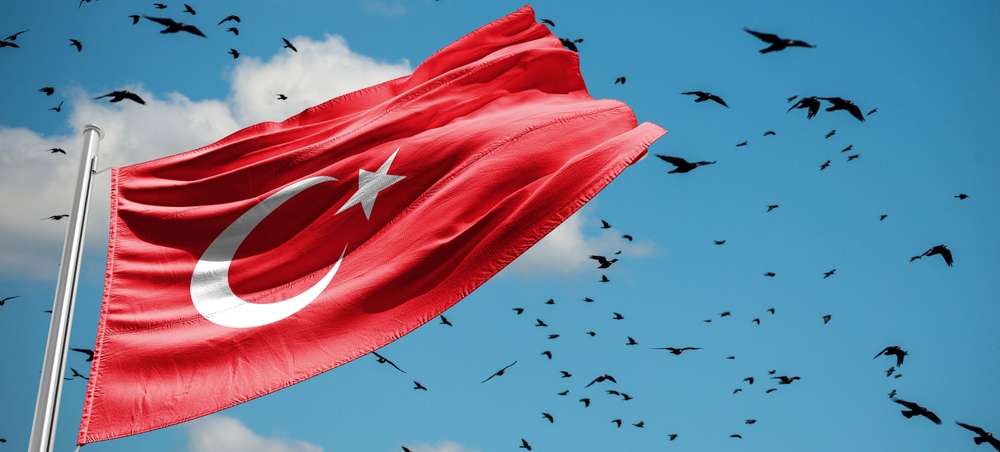Turkey, with its strategic location bridging Europe and Asia, has long been a crossroads of commerce and culture. While Istanbul, Ankara, and Izmir have traditionally been the powerhouses of the Turkish economy, several other cities are rapidly emerging as new business hubs. These cities offer unique opportunities for investors and entrepreneurs seeking to capitalize on Turkey’s dynamic economic landscape. Here’s a closer look at some of the emerging business hubs in Turkey that you should know about.
Bursa: The Automotive and Textile Powerhouse
Located in the Marmara Region, Bursa is often referred to as the cradle of the Turkish automotive and textile industries. Known for its rich history as the first capital of the Ottoman Empire, Bursa has successfully transformed into a modern industrial powerhouse.
Automotive Industry: Bursa is home to several major automotive manufacturers, including Tofaş (a joint venture with Fiat), Oyak Renault, and Karsan. The city’s automotive sector is bolstered by a robust network of suppliers and ancillary industries, making it a critical hub for automotive production and innovation in Turkey.
Textile Industry: Bursa has a long-standing reputation as a center for textile and silk production. The city’s textile sector continues to thrive, with numerous companies engaged in producing high-quality fabrics and garments for both domestic and international markets. Bursa’s textile products are known for their quality and craftsmanship, making them highly sought after in global markets.
Tourism and Culture: Beyond its industrial might, Bursa is also a significant cultural and tourism center. The city’s historical landmarks, such as the Grand Mosque (Ulu Cami) and the Green Tomb (Yeşil Türbe), along with its thermal baths and proximity to Uludağ Mountain, attract millions of visitors each year.
Gaziantep: The Food and Manufacturing Hub
Gaziantep, located in southeastern Turkey, is renowned for its rich culinary heritage and vibrant manufacturing sector. The city’s strategic location near the Syrian border has historically made it a key trade and commerce center.
Culinary Heritage: Gaziantep is often hailed as the culinary capital of Turkey, famous for its diverse and flavorful cuisine. The city’s pistachios, baklava, and kebabs are legendary, and Gaziantep’s culinary culture has been recognized by UNESCO as a part of its Creative Cities Network. The food industry in Gaziantep not only caters to local tastes but also exports its delicacies worldwide.
Manufacturing and Industry: Gaziantep has a robust manufacturing sector, with industries ranging from textiles and carpets to machinery and chemicals. The city is particularly known for its production of machine-made carpets, which are exported to over 130 countries. The organized industrial zones in Gaziantep provide a conducive environment for manufacturing and trade, attracting significant domestic and foreign investment.
Trade and Logistics: Gaziantep’s location as a gateway to the Middle East positions it as a vital trade and logistics hub. The city’s well-developed infrastructure, including its international airport and extensive road networks, facilitates the efficient movement of goods and services.
Konya: The Agricultural and Industrial Nexus
Konya, situated in central Turkey, is known for its agricultural prowess and growing industrial sector. The city’s historical and cultural significance, coupled with its economic dynamism, makes it an emerging business hub.
Agriculture: Konya is often referred to as the breadbasket of Turkey due to its extensive agricultural production. The region’s fertile plains are ideal for growing a variety of crops, including wheat, barley, sugar beets, and sunflowers. Konya’s agricultural output plays a crucial role in ensuring food security for Turkey and contributes significantly to the country’s economy.
Industrial Development: In addition to agriculture, Konya has a burgeoning industrial sector. The city is home to numerous manufacturing enterprises, particularly in the machinery, automotive parts, and food processing industries. The Konya Organized Industrial Zone (KOS) is one of Turkey’s largest and most advanced industrial areas, providing state-of-the-art facilities and infrastructure for businesses.
Cultural Heritage: Konya’s rich cultural heritage, highlighted by its association with the famous Sufi mystic Rumi, attracts thousands of tourists and scholars each year. The city’s historical sites, such as the Mevlana Museum and the Alaeddin Mosque, add to its appeal as a cultural and economic center.
TURKEY VISA FROM SOLOMON ISLANDS
Mersin: The Maritime and Logistics Hub
Mersin, located on the Mediterranean coast, is emerging as a significant maritime and logistics hub. The city’s strategic location and well-developed port infrastructure make it a critical gateway for trade.
Port of Mersin: The Port of Mersin is one of Turkey’s largest and busiest ports, handling a substantial volume of container and cargo traffic. The port’s strategic location on the Mediterranean coast provides direct access to Europe, the Middle East, and North Africa, making it a vital node in global supply chains.
Free Trade Zone: The Mersin Free Trade Zone offers numerous incentives for businesses, including tax exemptions and streamlined customs procedures. This zone attracts a wide range of industries, from manufacturing and assembly to warehousing and distribution, contributing to Mersin’s growth as a logistics and trade center.
Agriculture and Food Processing: Mersin’s fertile hinterland supports a thriving agricultural sector, producing a variety of fruits, vegetables, and grains. The city’s food processing industry leverages this agricultural output, producing high-quality food products for domestic and international markets.
Eskişehir: The Education and Innovation Center
Eskişehir, located in northwestern Turkey, is known for its educational institutions, innovative spirit, and quality of life. The city’s emphasis on education and research has fostered a dynamic business environment.
Educational Institutions: Eskişehir is home to two major universities, Anadolu University and Eskişehir Osmangazi University, which attract students from across Turkey and abroad. These institutions provide a steady stream of skilled graduates and foster a culture of research and innovation.
Innovation and Technology: The presence of university research centers and technology parks has made Eskişehir a hub for innovation and technology. The Eskişehir Technology Development Zone (ESTEK) supports startups and technology companies, encouraging the development of new products and solutions.
Quality of Life: Eskişehir is renowned for its high quality of life, with excellent infrastructure, green spaces, and cultural amenities. The city’s vibrant arts scene, lively cafes, and well-maintained parks make it an attractive place to live and work.
Conclusion
Turkey’s economic landscape is rapidly evolving, with several cities emerging as new business hubs. These cities offer unique opportunities for investors and entrepreneurs, driven by their strategic locations, robust infrastructure, and diverse industries. From Bursa’s automotive and textile strength to Mersin’s maritime prowess, these emerging business hubs are shaping Turkey’s economic future.
Also read: A Travel Guide to Rajasthan: History, Culture, and Scenery


